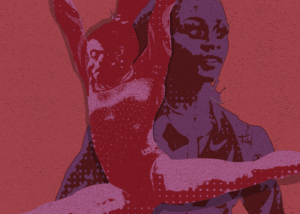If you even pay a minute amount of attention to the world of American Soccer, than you know that Michael Bradley recently transferred his way from Rome back Stateside. As of this January, Bradley will officially be plying his trade in the MLS for Toronto FC alongside recent acquisitions Jermaine Defoe and DC favorite Dwayne De Rosario.
Many negative words have been said on the subject of one of America’s finest ever midfielders moving from an excellent Serie A team back to what is popularly considered a second rate league. Many journalists and commentators have pointed to Bradley’s significant pay rise as his main motivator for leaving a club where he still had a significant role to play. While it’s a good bet that money had something to do with Bradley leaving Italy for “greener” pastures, but there good… or fair reasons for why la generale made the trip across the Atlantic.
Not to keep kicking the air out of a flat ball, but making money for athletes (especially soccer players) is different than if you’re a schmuck with a college degree. Oftentimes it can be more difficult. Disclaimer: I’m not talking Ronaldo or Zlatan level paychecks; I’m talking homegrown straight out of the NCAA players.
A player has about 10-13 good years in his legs before he hangs up his boots. The first of those years are spent in development, earning a decent wage, but nothing huge. The next few years are spent playing in their prime and earning as much money as you can before they’re past their best and are playing for decreased wages. After that, it’s up to a player to find some way to sustain themselves whether that be coaching, or working as a pundit a la Taylor Twellman. Think about it. Players have 10 years to really grab as much cash as they can to support themselves and their families.
Thankfully, most American soccer players are forced to graduate college, as the NCAA can be a crucial route to the professional game. Tommy Muller, a recent graduate of GU and an excellent central defender, has been with the San Jose Earthquakes an entire year and has yet to see any real game time. Even so, he’ll be able to fall back onto a degree from the McDonough School of Business when his playing career ends. Not the same for Bradley. He turned pro at 16 and never had the chance to go to school. Soccer is Bradley’s life, but he can only play it for so long. Who can really blame him for wanting to earn as much as he can given the time constraints?
Many people also accuse Bradley of only moving back to the MLS to play minutes before this summer’s World Cup in Brazil, which is a bit myopic considering that the arrival of Radja Nainggolan bumps Bradley down to fifth choice in a three man midfield. Bradley has every right to be concerned about minutes despite former coach Rudi Garcia’s assurances. Some might argue that he’s too good a player for national team coach Jurgen Klinnsman to ignore on the basis of playing time. But those in the soccer world who’ve heard the German speak first hand know that no player is safe.
Bradley’s move makes sense not only professionally, but personally. Bradley moved to play in Europe when he was 19. Since 2006, he’s played for five separate clubs on the continent in four different countries. I can understand why moving back to a place where the culture is a little more familiar would be appealing after seven years. On top of that, Bradley is starting a family, which can be difficult to do when a person has spent their whole lives rooted to one area.
Many critics of the move are saying that Bradley’s move hurts US soccer because it’s just another example of one of our top players not playing in a top league; Bradley’s move back to the MLS represents a slash in the quality of his competition and therefore might result in a decrease in his playing ability. I would argue that that’s a pessimistic outlook. While I’m not exactly a glass is half full type of guy, it’s far more likely that Bradley’s return to the states will help elevate the level of the game here. If you just ship your homegrown talent overseas instead of letting it germinate and infect younger talent, and you bring in foreign talent and never give that homegrown talent a chance, how is your league supposed to grow?
Look at Spain and Italy. Generally, many Spanish and Italian players choose not to leave the country of their birth, and as a result, the leagues are flush with untapped players. It’d be a challenge for anyone to pick a team in La Liga or Liga Adelante and not find at least one diamond in the rough. The fact of the matter is that leagues that keep their talent and hone it in a familiar environment produce some of the best national teams in the world (Brazil, Italy, Spain). Leagues like the EPL that bring in so much foreign talent only serve to choke the development of its youth. Bradley’s move isn’t a retreat. It’s a homecoming. It’s a chance for younger players to learn from a man who’s seen top-level competition.
Finally, people are bemoaning this move because Bradley was a badge of pride. Finally, just for this once, we had a midfielder who was playing relatively consistently for a team who was vying for a spot Champions League. As soon as he decided to move everyone turned on him. At the end of the day if he’s making a move that’s right for him professionally and personally, Bradley doesn’t owe us anything. And that’s just fine.





